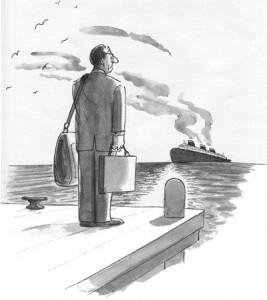
I found it interesting that on the same day that American producers were again renewing the call to battle piracy (although, unsurprisingly not mentioning the latest US legal judgement that a pirated download does not constitute a “lost sale” for calculation of damages… something I’ve long argued the MPAA and RIAA are using to cloak far more systemic problems with their respective business models) I was having a conversation with a couple of Canadian producers on Network Neutrality touching on similar issues (most of the Canadian ISP’s now looking to “shape” all that congesting BitTorrent traffic).
I’ll have much more to say on this as the Net Neutrality hearings at the CRTC heat up – but I wanted to share one of the key points that came out of my discussion that I’m not sure I had heard expressed with such crystal clarity before (and my apologies I can’t recall who actually made the point):
Without absolute network neutrality, content producers will never be able to provide legal content alternatives as effective as illegal ones.
Like the Napster/iTunes evolution, until a legitimate alternative exists which offers most of the benefits of the illegitimate one, you will never win the fight. And without true network neutrality, the capability to implement such a system would be limited entirely to those who own the infrastructure, essentially creating a new caste of “super broadcasters” to gatekeep access to audience.
One of the above discussions struck me as horrifically quaint, while one seemed refreshingly forward-thinking. Can you guess which one’s which?
(illustration via Education Week)








